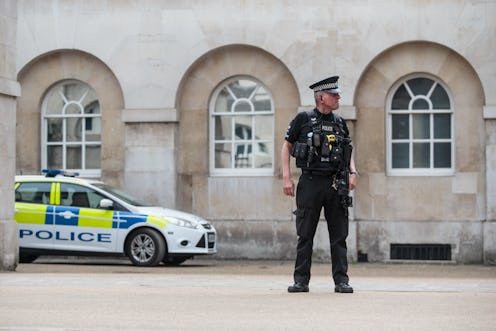
Following yesterday's tragic bombing at the Manchester Arena, the United Kingdom has raised its international terrorism threat level to critical. In light of this news and of yesterday's events, it is important to take a closer look at what exactly is meant by "critical terror threat level" and what its implications are for the public.
Terrorism threat levels in the United Kingdom are determined by MI5 (for domestic threats) and the Joint Terrorism Analysis Center (for international threats). M15 has been publishing both international and domestic terror threat levels on its website since 2006.
In the UK, terror threat levels are separated into threats from international terrorism and threats from Northern-Ireland-related (domestic) terrorism. The aforementioned critical threat level refers to threats from international terrorism (threats from Northern Ireland-related terrorism in Ireland and Britain are at slightly lower threat levels).
There are a total of five possible threat levels on the UK's terror threat level scale: low, moderate, substantial, severe, and critical. Critical constitutes the highest ranking and means that "an attack is expected imminently." The last time the terror threat level was at critical in the UK was on June 30, 2007, when multiple car bombs were planted throughout London (though, fortunately, they failed to detonate).
Terrorism threat levels are determined using a variety of factors. Some of these factors include available intelligence, terrorist intentions and capabilities, and timescale, or imminency of attack.
According to MI5's website, the raising of the UK's terror threat level to critical following the Manchester attack does not require a direct response from the public per se, but it does mean that individuals should be vigilant, as always, in observing their surroundings and taking proper security precautions.
Furthermore, as a result of the heightened threat level, Prime Minister Theresa May indicated on Tuesday that military personnel will now "be placed in key public locations to support armed police in protecting the public." May also noted that soldiers may be seen working at large-scale public events in the UK, like concerts and sporting events, over the next few weeks. However, while military personnel are being placed in public areas as a result of the raised threat level, the Prime Minister indicated that this should not be cause for overwhelming concern, saying that people should not feel "unduly alarmed," but that using military personnel is merely a "proportionate and sensible response".
Overall, while, as May noted, individuals in the UK should not be inordinately worried about the increased terror threat level, it is nonetheless always imperative to remain vigilant and report any suspicious activity (which, if you are in the UK, you can do by calling the anti-terrorist hotline). Terror threat levels are regularly evaluated and intelligence agencies will change the level accordingly if and when they believe threats from terrorism have been diminished.